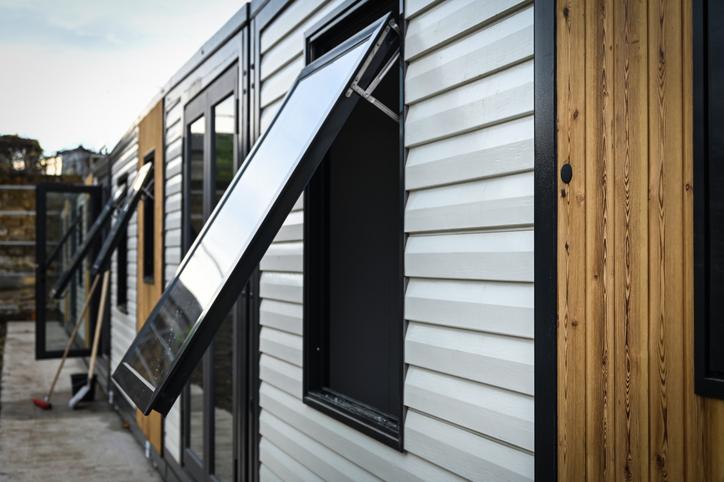When Brodie Green was depressed, hunting was the one thing that got him out of bed.
It was the thing that got him outside, it kept a roof over his head as a taxidermist and even kept him fed.
But his fear that seeking help for his depression could mean losing his gun license kept him from getting professional help.
“I never, ever wanted to put my firearms licence in jeopardy because someone thought that I was in a dark space and that I shouldn’t have firearms. When hunting is mainly the one thing that might pull me out of a dark place,” he said.
Re: News spoke to Green as part of our series The Regions. Watch the full series now on TVNZ+ and YouTube:
Misinformation rife among hunters
In New Zealand, police can revoke a firearms license if someone has unmanaged physical or mental health issues that mean they are not “fit and proper”.
However, the Firearms Safety Authority said only 0.4% of firearms licence holders have their licences revoked, and a “really small” proportion of these are for health reasons.
But misinformation about how easy it is to have your gun license removed for mental health reasons has caused some hunters to shy away from getting help.
“People have heard stories from friends that they’ll lose their firearms license if they seek help for their mental health. And it’s not the case,” said Kendra Hill from Te Tari Pūreke, the Firearms Safety Authority.
“It’s a case-by-case basis. And we would really encourage license holders to seek help from a health professional if they are struggling.”
Hill said this misinformation and distrust has stemmed from the past when there were inconsistencies with gun license revocations.
However, she said the establishment of the Firearms Safety Authority in 2022 and improvements to regulations means people can safely get help for their mental health and keep their license.
A firearm license will only be revoked in a small number of instances where there is a concern for personal safety or the safety of others.
Undoing damage from the past
Rural counsellor Kathryn Wright has been researching rural health for more than a decade and said young men’s fear of having their gun license removed is one of the biggest barriers to seeking help.

In 2024, she met with young farmers as part of her research and asked the room: “If you have mental health challenges, your firearms license will be revoked.” She asked who thought that was true.
“And hands went up,” she said. “People believe this.”
Wright said the misconstrued idea that going to a doctor will automatically mean your license will be removed is “incorrect” and “dangerous”.
She said it was up to the discretion of the counsellor or doctor to judge if the license holder poses a risk to themselves or others. And, if there isn’t a risk, the Firearm Safety Authority doesn’t need to be notified.
“That risk would be talking about suicide, threats or harming somebody else. And at that point, we must do something. It is our ethical obligation to do that because we can’t ignore the fact that suicides are higher among rural communities.
“But during my time as a counsellor, I have never had to make a notification. In my experience, most rural people come to me about anxiety, low mood, or work overload and stress so it hasn’t gotten to the level where I needed to notify anyone.”

When the Firearms Safety Authority is notified this does not mean a license is automatically revoked.
Kendra Hill from the Firearms Safety Authority said before opting to revoke a license, they may temporarily suspend the license instead. “What that means for the license holder is there is a window of time where you can provide us with a little bit more information to support receiving your license back.”
“It’s about having the conversation. So our message is if you do have any concerns for your health, go and see your health practitioner. That’s the best thing that you can do.”
Wright said stories of gun owners getting mental health help and keeping their licence happen every day, but aren’t heard about enough.
Instead, she said, it’s stories from the past where guns may have been removed unfairly that have stuck.
“I think that in the past, there are instances where people have had their guns removed and perhaps it hasn’t been looked into as thoroughly as it could be. But I believe that that has shifted substantially and that it is a case-by-case basis now.
“So it’s experiences and positive stories that will need to trickle through communities for people to trust that they will be okay.”
The start of Mental Hunts
In order to shift the narrative, hunter Glen Thurston started a mental health charity called Mental Hunts that advocates for hunters to seek help for their mental health and dismantle the fear around gun license revocation.

In 2019, before the establishment of the Firearm Safety Authority, Thurston had his license revoked after seeing a counsellor for his depression and suicidal thoughts. He said his guns were taken from him that day and the experience made him go silent.
“There was no revocation process back then so I didn’t know who I could talk to or when I could reapply. They couldn’t tell me anything.”
Thurston said once the Firearms Safety Authority was established, he started to get some answers and one day his license turned up in the mail.
“My story wasn’t positive, but back then we didn’t have the Firearms Safety Authority whose whole job is to specifically target this thing. We didn’t even have the self-surrender option back then.”
Self-surrender is a process brought in by the Firearms Safety Authority that means if someone is struggling, they can also surrender their license and give their firearms to another license holder.
They don’t need to tell the Firearm Safety Authority why they are surrendering their license and they can apply for their license once they are fit and well again.

“When you’re surrendered you can still shoot under the supervision of another license holder, so you can still go out hunting with your friends,” Hill said.
“And when you’re ready and your health condition is treated or under management, with the right medical evidence you can come back to us and be considered for a license again.”
Thurston said the options available to hunters now are like day and night.
“They are making changes,” he said. “There are options available to hunters now that weren’t there for me, and you can control your own destiny rather than being told what it is.”
Thurston is still taking medication for his depression and has been open about his struggles with his mental health and getting counselling and has retained his gun license — he said this proves there have been positive changes.
“There’s still a long way to go and the biggest thing now is building that trust again and showing that you can get help for your mental health and keep your licence. And if you do it, that actually shows that you are a responsible gun owner.”
“I didn’t get help for 20 years for my mental health but when I did, my life was awesome again. And people need to know that. Nothing is worth putting off getting help.”

Knowing what he knows now, hunter Green said he would have spoken out about his depression earlier. “I definitely am in the belief now that it’s certainly a lot better to speak out when things first start to go wrong than let them bottle up,” he said.
Watch The Regions series now on TVNZ+ and YouTube.
Made with the support of NZ On Air.
Where to get help
1737: The nationwide, 24/7 mental health support line. Call or text 1737 to speak to a trained counsellor.
Suicide Crisis Line: Free call 0508 TAUTOKO or 0508 828 865. Nationwide 24/7 support line operated by experienced counsellors with advanced suicide prevention training.
Youthline: Free call 0800 376 633, free text 234. Nationwide service focused on supporting young people.
OUTLine NZ: Freephone 0800 OUTLINE (0800 688 5463). National service that helps LGBTIQ+ New Zealanders access support, information and a sense of community.
Mental Hunts: Visit here for more information about firearms safety.












